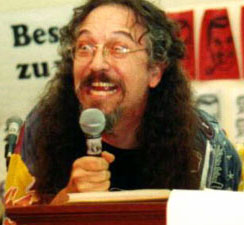It has been a curious fact of my life that leaving a full-time job has generally meant leaving the country. My first real job out of college was a proofreading gig with a graphic design firm, the whole point of which was to save up money for my four-month trip to India and Nepal. My next permanent job was with DoubleClick, which I left in 2001 to go to Korea. From there, once my year of teaching was up, I was only too glad to hop on a plane and head for Kathmandu.
One could even argue that I crossed a national boundary to take my current job, as speech writer for the South Korean Mission to the UN, which I will be leaving at the end of work today. I work on Korean territory, under Korean law, with Korean colleagues, and saying goodbye feels a lot like leaving Korea did, right down to the inscrutable calculations that have gone into my final paycheck. Once again, I find myself wondering whether I will ever see most of these people again, what role my Korean experience will play in my future, and what it will be like to readjust to the American workplace.
My final week here has been punctuated by overeating at lunch and back strain in the evenings. On Monday I was taken to an Italian restaurant, Tuesday was Japanese, Wednesday was a final visit to the Delegates Dining Room inside the UN and its dangerously tempting buffet (why not have a second dessert?), and yesterday was Greek seafood. I think I’m actually going to wind up buying my own lunch today, but there’s some sort of party in the afternoon.
The back strain is a result of three and a half years of hoarding: a ridiculous number of books, including a pair of Korean-English dictionaries with terrifying heft, along with extensive paperwork, notebooks, a pair of dress shoes, a space heater, my STV mug, posters, two spoons, a cell charger, headphones, CDs, etc. I’ve twice filled a small suitcase, and a couple of time hauled home an overstuffed backpack — last night was two bottles of wine destined for regifting. I was a little disappointed when someone came into my office today to return a book I had lent him long ago, and also to give me a new one: two more to carry home tonight.
The amount of junk I’d accumulated is to some extent a symbol of how much at home I’d come to feel here. I have never been happier at a job or more reluctant to leave it. One of my colleagues asked me if I was going to go out and party tonight, and I told him that I am, in fact, planning to have a study session with my Korean conversation partner. I am not so much rejecting the old as welcoming the new.
As far as that goes, I think it’ll be good for me to come home again to an American workplace, and to be surrounded by colleagues who are genuinely my peers. Where will it take me? Who knows? If past history is any guide, probably to some other country.

 Last week was a hectic one here at the Permanent Mission of the Republic of Korea to the UN. A quiet lull, during which most of our staff seemed to be out at JFK to meet Foreign Minister Song Min-soon, gave way to an unusual burst of activity, as I spent the better part of a week going back and forth with the Minister’s team as we revised and refined his statement to the General Assembly, as well as his speech to the Council on Foreign Relations. At one point, I was even invited to a breakfast meeting at the Waldorf-Astoria.
Last week was a hectic one here at the Permanent Mission of the Republic of Korea to the UN. A quiet lull, during which most of our staff seemed to be out at JFK to meet Foreign Minister Song Min-soon, gave way to an unusual burst of activity, as I spent the better part of a week going back and forth with the Minister’s team as we revised and refined his statement to the General Assembly, as well as his speech to the Council on Foreign Relations. At one point, I was even invited to a breakfast meeting at the Waldorf-Astoria.



 Today marks the one-year anniversary of my current self-guided Korean language study program.
Today marks the one-year anniversary of my current self-guided Korean language study program. Now and again, various diplomats ask me about English idioms or snippets of text that they don’t understand.
Now and again, various diplomats ask me about English idioms or snippets of text that they don’t understand.